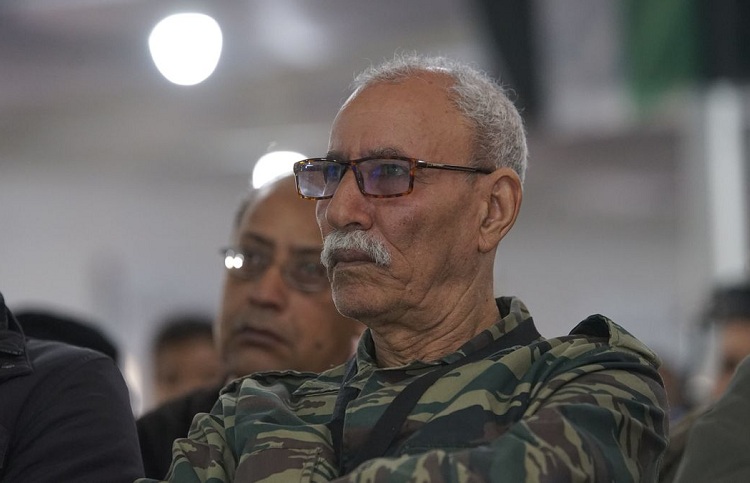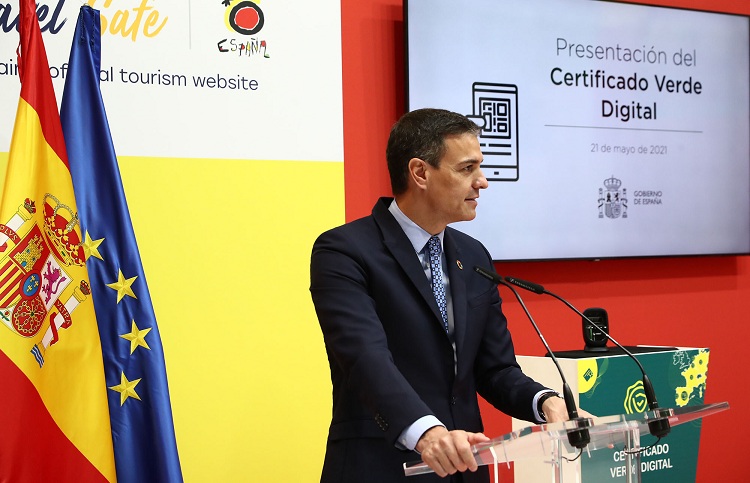Eduardo González
The Government has assured that the leader of the Polisario Front, Brahim Ghali, entered Spain with a legal passport issued in Algeria in which his real name appeared and that the decision to admit him in the hospital of Logroño under a false name was decided personally by him and by the persons in charge of the center in order to preserve his identity.
Official sources of the Ministry of Foreign Affairs assured yesterday that Ghali was carrying a passport which “fulfilled the ordinary requirements” and which had been issued by Algeria, something which is usual for Saharawis who want to enter Spain. They also insisted that the document was not issued by the Spanish authorities and that the government was not involved in the decision to admit him to hospital under a false name, which was taken “freely” by Ghali himself.
The same sources also denied the “speculations” on the supposed immunity offered by the Spanish government to Ghali in the face of the investigation opened against him by the National Court for alleged war crimes and assured that if the judicial summons were to be issued, the Saharawi leader would have to comply with it “like any other person on Spanish territory”.
According to judicial sources informed Europa Press, the judge of the Central Court of Instruction number 5 of the National Court, Santiago Pedraz, has no evidence that Brahim Ghali has entered Spain under the false identity of Mohamed Bembatouche and has no plans to investigate this matter because he considers that it is not within his competence. In any case, this matter could end up in the courts of La Rioja, since the Saharawi leader was admitted in the Hospital of San Millan-San Pedro, in Logroño, or in some court of Aragon, because he was sent by ambulance from Zaragoza. In any case, Pedraz expects to take his statement on Tuesday, June 1, so that he can respond as an investigated person.
The Foreign ministry sources could not provide any details on the current state of health of the SADR president and leader of the Polisario Front, whose admission took place for “strictly humanitarian” reasons to treat him for the COVID-19 and does not entail “any assessment of the relationship with Morocco, a strategic and positive ally of Spain in many important dimensions”.
In any case, the same sources also assured that the diplomatic crisis opened with Rabat due to the entry of Ghali -the largest since the assault on Perejil Island, in July 2002-, which resulted in the recent massive entry of 8. 000 migrants in Ceuta in the face of the passivity of the Moroccan authorities, does not have to affect the High Level Meeting between the two countries, which has been postponed twice because of the epidemiological situation in the North African country and which still has no specific date because Morocco maintains closed connectivity with “a large number of countries”. “Discussions are continuing”, they said.
Another aspect that does not seem to be of much concern to the Spanish government is the lack of a position on the part of the United States regarding the assault in Ceuta. According to the sources, the contacts between Washington and Rabat are focused, fundamentally, on the current Middle East crisis between Israel and Palestine and, therefore, the United States “does not have any specific position” on the border crisis with Spain. “We have not asked for it either, it is a strictly European problem”.
In this regard, the spokeswoman for Foreign Affairs of the European Commission, Nabila Massrali, has assured that the EU High Representative for Foreign Policy, Josep Borrell, had a telephone conversation with the Moroccan Minister of Foreign Affairs, Nasser Bourita, on Thursday night, in which he did not address the possible freezing of the funds provided by the Union to Morocco for the management of its border (Morocco is the second African country that receives the most aid from Brussels for migration management, with about 250 million euros in the last three years) and merely reiterated the EU’s intention to jointly address the situation in Ceuta.
The issues of Morocco and migration management do not appear, for the moment, on the agenda of the European Council of the next 24 and 25 May, which will be attended by the President of the Government, Pedro Sánchez, and which will address, in principle, the COVID-19 pandemic, climate change, the situation in Russia and relations between the EU and the United Kingdom.
Last Thursday night, Nasser Bourita assured the state news agency MAP that Morocco will continue to “demand clarifications” from Spain in relation to Ghali, because “this is the bottom of the crisis” and the humanitarian explanations of the Spanish government “do not deceive anyone”. “Spain is making Europe pay the price for its clumsiness and must explain how an EU member country admits people with false identities into European territory and how it can harbor someone prosecuted for war crimes, crimes against humanity, rape and human rights violations”, he added. Likewise, he assured that the EU does not give his country “not even 20 percent of the cost that Morocco assumes in the fight against illegal immigration”.







